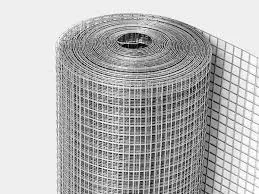Aug . 14, 2024 18:42 Back to list
Optimal Field Fencing Solutions for Ensuring Safety and Comfort for Horses in Pastures
Field Fencing for Horses Ensuring Safety and Security
When it comes to keeping horses safe and secure, one of the most crucial aspects is proper field fencing. Horses are naturally curious and active creatures that require a dedicated space to roam freely while remaining protected from potential dangers. Effective fencing not only defines the boundaries of their environment but also plays an integral role in their overall health and wellbeing.
Importance of Choosing the Right Fence
Choosing the right type of fencing is fundamental in horse care. Traditional wooden fences, wire fencing, and vinyl options each have their own advantages and disadvantages. Wooden fencing, for instance, can offer a classic aesthetic appeal and is durable, but it may require regular maintenance to prevent rot and splintering. Wire fencing, on the other hand, can be cost-effective and is often easier to install, but it can pose a higher risk of injury if not installed correctly or if horses become entangled.
Electric fencing has gained popularity among horse owners due to its effectiveness in keeping horses within designated areas without the need for physical barriers. When used appropriately, it can be a safe and humane option, delivering a mild shock that teaches horses to respect the fence. However, it requires regular checks to ensure it is functioning properly and that vegetation does not create shorts in the system.
Key Considerations for Field Fencing
Before installing fencing, there are several key considerations to keep in mind
field fencing for horses

1. Height and Design Horses are known for their strength and jumping abilities. Generally, a fence should be at least 4.5 to 6 feet high, depending on the breed and behavior of the horses. The type of design, whether it’s a solid board fence, mesh, or a combination, should also accommodate the specific needs of your horses.
2. Visibility Horses are less likely to approach a fence they can see through. Solid boards or other materials with minimal gaps are preferable for preventing injuries. Ensuring that the fencing is visible, especially in areas with poor lighting, helps reduce the risk of accidents.
3. Maintenance and Durability Regular inspections and maintenance are essential. Fences should be checked for signs of wear, damage, or rot and repaired promptly to ensure they remain effective. The durability of materials used will directly impact the long-term security of the enclosure.
4. Terrain Considerations The terrain of the field can also dictate the type of fencing you should install. For instance, hilly or rocky areas may require stronger types of materials to withstand the stresses of the environment.
5. Gates and Access Points Gates are another critical component; they should be easy to use but secure enough to prevent accidental openings. Automating gates can provide additional convenience, allowing for efficient entry and exit.
Conclusion
Field fencing for horses is not simply a matter of enclosing space; it is a commitment to the safety and welfare of these majestic animals. By carefully considering the type of fencing material, design, maintenance, and the specific needs of your horses, you can create a secure environment that allows them to thrive. Whether you choose traditional wooden barriers, sleek vinyl, or effective electric options, the goal remains the same to ensure that your horses are safe, happy, and able to enjoy their pasture to its fullest. Ultimately, investing time and resources into effective field fencing will pay off in the form of healthier horses and peace of mind for their owners.
-
The Power of Iron Wire: A Versatile Solution for Multiple Applications
NewsJun.19,2025
-
Reliable Hydraulic Fittings for Optimal Performance
NewsJun.19,2025
-
Quality Roofing Nails for Every Project
NewsJun.19,2025
-
Hexagonal Wire Mesh: Versatile and Durable Solutions for Every Project
NewsJun.19,2025
-
Enhancing Security with Barbed Wire Solutions
NewsJun.19,2025
-
Binding Wire: The Essential Material for a Variety of Applications
NewsJun.19,2025









